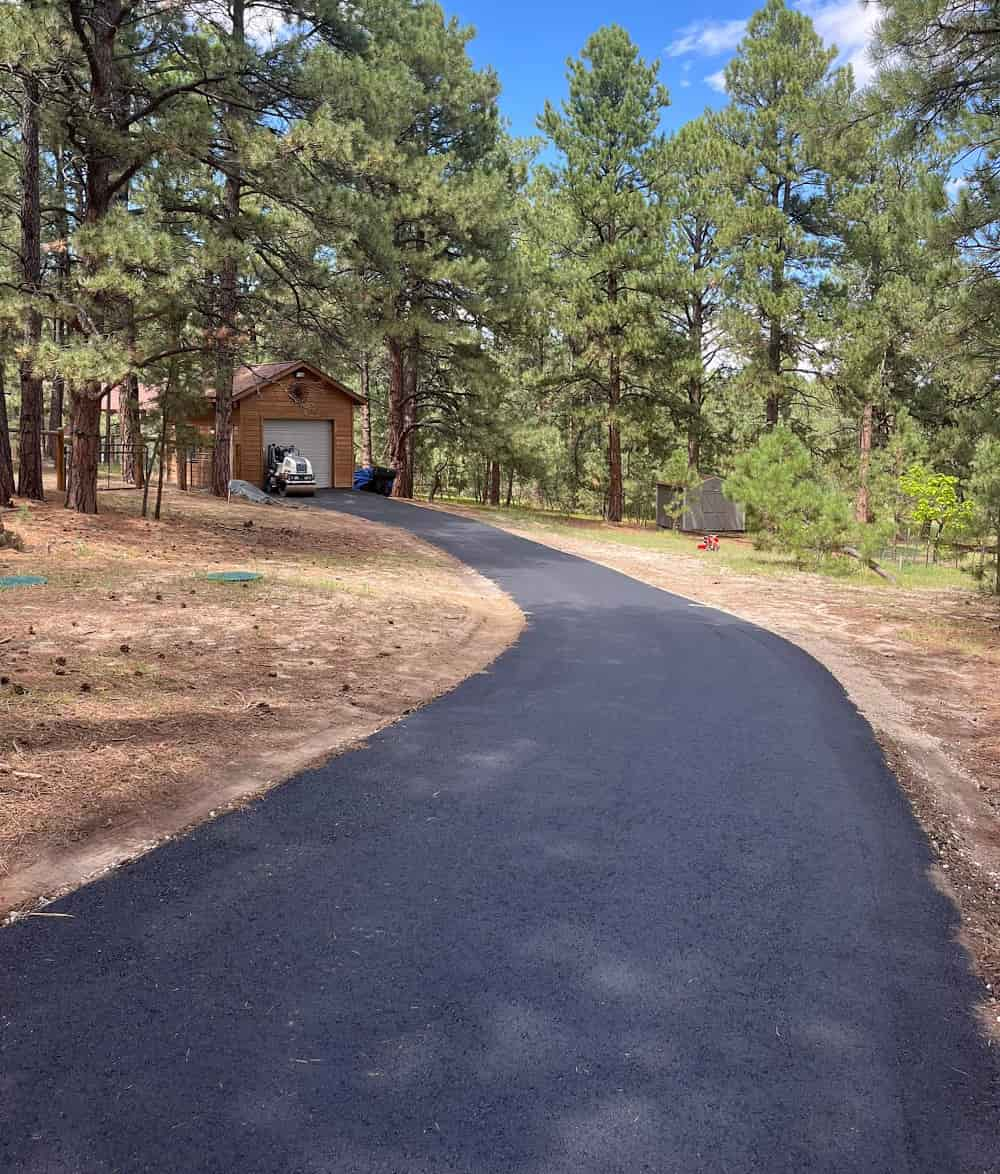
Are you considering asphalt driveway paving? A new driveway can significantly enhance your home’s curb appeal and provide a smoother surface for your vehicles. As experienced asphalt contractors, we understand that installing a new driveway is a substantial investment. To help you make informed decisions, we’ve compiled a list of frequently asked questions about asphalt driveway paving.
An asphalt driveway typically lasts 20-30 years. Its longevity depends on several factors:
Preventive maintenance, including sealcoating, crack sealing, and asphalt patching, can significantly extend your driveway’s lifespan and maintain its appearance.
You should wait 24-72 hours before driving on a new asphalt driveway. This waiting period is crucial for proper curing and ensures the durability of your new surface. Factors affecting curing time include temperature, humidity, thickness of the asphalt layer, and the type of asphalt mix used. In hotter weather, the curing process may take longer.
Most driveways can be paved in under a day. The exact duration depends on various factors, such as the size and shape of the driveway, condition of the existing base, need for excavation or repairs, weather conditions, and crew size. For larger or more complex projects, the process might extend over multiple days, especially if significant base preparation is required.
The best time to install an asphalt driveway is anytime of year if the ground and weather conditions are right. In the Front Range, we typically install from late April through October. This period offers several advantages:
Roller marks are temporary impressions left during the compaction process. These marks are a normal part of asphalt installation and serve important purposes, such as ensuring proper density, improving structural integrity, and enhancing surface smoothness. As your driveway settles and weathers naturally over several months, these marks will become less noticeable, blending into a uniform surface.
This occurs due to different aggregate sizes in the asphalt mix, variations between asphalt batches, changes in temperature during installation, and differences in compaction across the surface. These texture variations are cosmetic and normal and do not affect the driveway’s performance or longevity. Over time, weathering will help blend these differences for a more uniform appearance.
Yes, sealcoating your asphalt driveway is highly recommended. This protective measure offers several benefits:
Regular sealcoating is a cost-effective way to maintain your driveway’s integrity and appearance over time.
You should sealcoat your asphalt driveway every 3 years on average. The ideal frequency can vary based on climate, traffic volume, overall condition of the asphalt, and quality of previous sealcoating applications. High-traffic areas or driveways exposed to harsh conditions may benefit from more frequent sealcoating, while well-maintained driveways in milder climates might require less frequent treatment.
Wait at least 90 days before sealcoating a new asphalt driveway. This waiting period allows for complete curing of the asphalt, release of oils from the surface. In regions like Colorado, it’s often best to wait until the following spring after installation, ensuring optimal weather conditions for sealant application and allowing the driveway to experience a full cycle of seasonal changes before treatment.
Proper maintenance of your asphalt driveway involves several key practices:
Implementing these maintenance practices can significantly extend your driveway’s lifespan and maintain its appearance.
To prevent edge cracking, ensure proper backfilling along the edges and avoid parking or driving on the driveway edges. Consider installing edge restraints for additional support, maintain good drainage away from the driveway, and address any developing cracks promptly. The edges are the most vulnerable parts of an asphalt driveway, so providing adequate support and minimizing stress on these areas is crucial for long-term durability.
Yes and no. Overlaying asphalt on a concrete driveway is possible depending on:
A professional assessment is necessary to determine if an asphalt overlay is suitable for your specific situation. In some cases, complete removal of the old concrete may be recommended for the best long-term results.
Riley’s Asphalt has been a trusted name in asphalt paving for over 30 years, serving Castle Rock and the surrounding areas. Our family-owned and operated company specializes in high-quality asphalt driveway installations, repairs, and maintenance.
Whether you’re considering a new asphalt driveway or need expert maintenance for your existing one, our experienced team is here to help. We use premium materials and advanced techniques to ensure long-lasting, beautiful results that enhance your property’s value and appeal.
To request a free, no-obligation estimate for your asphalt driveway project, contact Riley’s Asphalt today and a member of our team will reach out to you promptly. Let us show you why Riley’s Asphalt is the preferred choice for asphalt driveway services in your area.
Please complete the form below for a free no-obligation estimate.